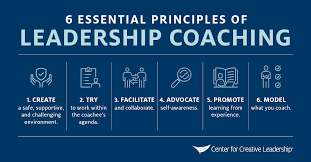Leadership Coaching: Unlocking Your Full Potential
Leadership is not just about holding a position of authority; it’s about inspiring and empowering others to achieve greatness. Great leaders are not born; they are made through continuous learning, self-reflection, and personal growth. This is where leadership coaching comes into play.
Leadership coaching is a specialized form of coaching that focuses on developing leadership skills, enhancing self-awareness, and cultivating effective strategies for leading teams and organizations. It provides individuals with the tools, guidance, and support needed to unlock their full potential as leaders.
One of the key benefits of leadership coaching is the opportunity for self-reflection. Through thoughtful questioning and feedback from a skilled coach, individuals gain insights into their strengths, weaknesses, values, and beliefs. This increased self-awareness enables leaders to understand how their behaviors impact those around them and make necessary adjustments to improve their leadership effectiveness.
Another crucial aspect of leadership coaching is the development of essential skills such as communication, emotional intelligence, decision-making, and conflict resolution. A coach acts as a trusted advisor who helps leaders identify areas for improvement and provides guidance on how to develop these skills. By honing these abilities, leaders can build stronger relationships with their teams, inspire trust and collaboration, and navigate challenges with confidence.
Leadership coaching also plays a vital role in helping individuals set meaningful goals and create actionable plans to achieve them. A coach helps leaders clarify their vision, align it with organizational objectives, and break it down into manageable steps. This process ensures that leaders stay focused on what truly matters while continuously monitoring progress toward their goals.
In addition to individual coaching sessions, group or team coaching can be highly beneficial in fostering collective growth within organizations. Group coaching creates a supportive environment where team members can learn from each other’s experiences, share insights, and develop shared goals. It promotes collaboration, enhances communication skills among team members, and strengthens overall team performance.
It’s important to note that leadership coaching is not a one-size-fits-all solution. Each leader has unique strengths, challenges, and aspirations. A skilled coach recognizes this and tailors the coaching approach to meet the specific needs of each individual. Whether it’s through one-on-one sessions, workshops, or assessments, the coaching process is customized to address the specific goals and challenges of the leader.
Leadership coaching is an investment in personal and professional growth that pays dividends not only for individuals but also for organizations as a whole. By developing strong leaders, organizations can create a culture of excellence, innovation, and engagement. They can attract and retain top talent, foster employee satisfaction and loyalty, and achieve sustainable success.
If you aspire to become a better leader or are looking to develop your leadership team, consider investing in leadership coaching. Unlock your full potential as a leader, inspire others with your vision, and create lasting positive change within yourself and your organization.
8 Essential Tips for Effective Leadership Coaching
- Set clear goals and objectives
- Identify areas of development
- Establish trust
- Be proactive
- Practice active listening
- Ask questions
- Take action on feedback
- Celebrate successes
Set clear goals and objectives
Setting Clear Goals and Objectives: A Key to Effective Leadership Coaching
In the realm of leadership coaching, one powerful tip that can significantly enhance the coaching experience is setting clear goals and objectives. Clear goals provide a roadmap for both the coach and the leader being coached, guiding them toward desired outcomes and fostering a sense of direction and purpose.
When leaders set clear goals and objectives, they create a framework for their coaching journey. This clarity allows them to focus on specific areas they want to develop or improve upon, whether it’s enhancing communication skills, building emotional intelligence, or refining decision-making abilities. By identifying these target areas, leaders can work with their coach to design a coaching plan that aligns with their aspirations.
Clear goals also enable coaches to tailor their approach and interventions accordingly. With a deep understanding of the leader’s objectives, coaches can provide targeted guidance, ask relevant questions, and offer specific tools or resources that support the leader in achieving their desired outcomes. This personalized approach enhances the effectiveness of coaching sessions and maximizes the leader’s growth potential.
Furthermore, setting clear goals helps leaders measure progress along their coaching journey. By defining specific milestones or indicators of success, leaders can track their development over time. This tracking not only provides motivation but also allows for adjustments in strategies or approaches if needed. It ensures that leaders stay on track towards achieving their desired results.
In addition to individual benefits, setting clear goals and objectives also contributes to organizational success. When leaders have a clear vision of what they want to achieve through coaching, they can align those goals with broader organizational objectives. This alignment ensures that leadership development efforts are in sync with organizational priorities and contribute directly to overall business success.
To set clear goals and objectives effectively in leadership coaching:
- Reflect on your strengths and areas for improvement: Identify specific aspects of your leadership style or skills that you would like to enhance or develop further.
- Prioritize your goals: Determine which goals are most important and relevant to your current role or career aspirations.
- Make goals SMART: Ensure that your goals are Specific, Measurable, Achievable, Relevant, and Time-bound. This framework provides clarity and helps you create actionable steps towards achieving your objectives.
- Communicate with your coach: Share your goals and objectives with your coach. Discuss them openly, so they can understand your vision and support you effectively.
- Review and adjust as needed: Regularly assess your progress towards your goals and make adjustments as necessary. This flexibility ensures that you stay aligned with changing circumstances or new insights gained during the coaching process.
By setting clear goals and objectives in leadership coaching, leaders empower themselves to take charge of their development journey. With a clear destination in mind, leaders can navigate challenges more effectively, drive meaningful change within themselves and their organizations, and ultimately become the inspiring leaders they aspire to be.
Identify areas of development
One of the most valuable tips in leadership coaching is to identify areas of development. Self-awareness is a crucial aspect of effective leadership, and recognizing areas where improvement is needed is the first step towards personal and professional growth.
Leadership coaches assist individuals in examining their strengths and weaknesses objectively. They help leaders gain insights into their behaviors, communication styles, decision-making processes, and interpersonal skills. By identifying areas that require development, leaders can focus their efforts on specific aspects that will have the greatest impact on their leadership effectiveness.
Identifying areas of development allows leaders to set clear goals for improvement. It helps them prioritize what skills or behaviors they need to work on to become more effective leaders. With a targeted approach, leaders can create action plans that outline steps to be taken and resources needed to achieve their desired outcomes.
Moreover, by acknowledging areas for development, leaders demonstrate humility and a growth mindset. They recognize that even the most accomplished individuals have room for improvement. This openness to learning sets an example for their teams and fosters a culture of continuous growth within the organization.
Leadership coaching provides a safe space for leaders to explore their developmental areas without judgment or criticism. Coaches offer support, guidance, and feedback throughout the process, helping leaders navigate challenges and overcome obstacles along the way.
By actively addressing areas of development through coaching, leaders enhance their overall effectiveness and impact within their organizations. They become better equipped to lead teams, make informed decisions, communicate effectively with stakeholders at all levels, and adapt to ever-changing business environments.
In conclusion, identifying areas of development is a vital tip in leadership coaching. It enables leaders to gain self-awareness, set goals for improvement, demonstrate humility, and create action plans for growth. By embracing this tip and working with a skilled coach, leaders can unlock their full potential and become more impactful in their roles as they continue on their journey of continuous improvement.
Establish trust
Establishing Trust: The Foundation of Effective Leadership Coaching
Trust is the cornerstone of any successful relationship, and leadership coaching is no exception. When leaders establish trust with their coaches, it creates a safe and supportive environment for growth, learning, and transformation.
In the context of leadership coaching, trust is a two-way street. Leaders need to trust their coaches to provide honest feedback, maintain confidentiality, and act in their best interests. At the same time, coaches must trust leaders to be open and receptive to feedback, willing to explore new perspectives, and committed to their own development.
Why is establishing trust so crucial in leadership coaching? Firstly, trust allows leaders to be vulnerable. It enables them to share their challenges, fears, and aspirations without fear of judgment or repercussions. This vulnerability opens the door for deeper exploration and understanding of oneself as a leader.
Secondly, trust fosters open communication. When leaders feel safe expressing their thoughts and concerns honestly, it paves the way for meaningful conversations that lead to insights and breakthroughs. Coaches can ask probing questions and challenge assumptions without causing defensiveness or resistance.
Furthermore, trust builds a strong foundation for accountability. Leaders who trust their coaches are more likely to embrace accountability for their actions and commitments. They understand that the coach’s role is not just about providing guidance but also holding them accountable for taking action towards their goals.
Establishing trust in leadership coaching requires intentional effort from both parties involved. Here are some key strategies that can help cultivate trust:
- Confidentiality: Coaches must create an atmosphere where leaders feel confident that what they share will remain confidential. This builds a sense of safety and encourages openness.
- Active Listening: Coaches should practice active listening by fully focusing on what leaders are saying without interrupting or judging. This demonstrates respect and validates leaders’ experiences.
- Authenticity: Coaches should be genuine in their interactions with leaders. Authenticity helps build rapport and establishes a foundation of trust.
- Consistency: Coaches need to consistently demonstrate their commitment to the coaching process and the growth of the leaders they work with. This consistency builds trust over time.
- Mutual Respect: Leaders and coaches should approach the coaching relationship with mutual respect. Respect for each other’s perspectives, experiences, and expertise fosters trust and collaboration.
Establishing trust is not an overnight process; it requires ongoing effort and nurturing. However, when leaders and coaches invest in building trust, it sets the stage for a powerful coaching journey that can lead to transformative growth, enhanced leadership effectiveness, and ultimately, success for both individuals and organizations.
Be proactive
Leadership Coaching Tip: Be Proactive
In the realm of leadership coaching, one essential tip that can significantly impact your effectiveness as a leader is to be proactive. Being proactive means taking initiative, anticipating challenges, and actively seeking solutions before problems arise.
Proactivity is a mindset that empowers leaders to stay ahead of the curve and tackle issues head-on. It involves being proactive in decision-making, problem-solving, and goal-setting. Instead of waiting for things to happen or reacting to situations as they arise, proactive leaders take charge and shape their circumstances.
One key aspect of being proactive is taking ownership of your actions and outcomes. Rather than blaming external factors or circumstances for setbacks, proactive leaders focus on what they can control and take responsibility for their choices. This mindset not only fosters personal growth but also inspires accountability within the team.
Proactive leaders also prioritize continuous learning and improvement. They actively seek opportunities for professional development, whether it’s attending workshops, reading books on leadership, or seeking feedback from mentors or coaches. By investing in their own growth, proactive leaders stay ahead of industry trends and acquire new skills that can benefit both themselves and their teams.
Another important aspect of proactivity is effective communication. Proactive leaders are not just good listeners; they also initiate conversations and proactively communicate expectations, goals, and feedback with their team members. By fostering open lines of communication, they create an environment where ideas can flow freely, collaboration thrives, and potential issues are addressed before they escalate.
Being proactive also means embracing change rather than resisting it. In today’s fast-paced world, organizations must adapt to evolving market conditions and technological advancements. Proactive leaders anticipate change by staying informed about industry trends and proactively seeking innovative solutions to stay ahead of the competition.
Furthermore, being proactive involves empowering others by delegating responsibilities effectively. Proactive leaders recognize the strengths of their team members and delegate tasks accordingly. This not only frees up their own time for more strategic initiatives but also empowers team members to develop new skills and take ownership of their work.
In summary, being proactive is a fundamental tip in leadership coaching. It empowers leaders to take charge, anticipate challenges, and actively seek solutions. By adopting a proactive mindset, leaders can drive positive change, foster accountability, and create a culture of continuous improvement within their teams and organizations. So, embrace proactivity and unlock your full potential as a proactive leader.
Practice active listening
Practice Active Listening: A Key to Effective Leadership Coaching
In the fast-paced world of leadership, effective communication is vital. One crucial aspect of communication that often gets overlooked is active listening. As a leader, practicing active listening can significantly enhance your coaching skills and foster stronger relationships with your team members.
Active listening goes beyond simply hearing the words being spoken; it involves fully engaging with the speaker and seeking to understand their perspective, emotions, and underlying needs. By practicing active listening, leaders can create a safe and supportive environment where team members feel heard, valued, and understood.
So how can you incorporate active listening into your leadership coaching? Here are a few tips to get started:
- Be present: When engaging in a conversation with someone, give them your full attention. Put away distractions such as phones or laptops and focus on the person speaking. Show genuine interest by maintaining eye contact and using non-verbal cues like nodding or leaning in.
- Listen without judgment: As a leader, it’s essential to create a judgment-free space where individuals feel comfortable sharing their thoughts and concerns openly. Avoid interrupting or jumping to conclusions. Instead, allow the speaker to express themselves fully before responding.
- Ask open-ended questions: Encourage deeper reflection and exploration by asking open-ended questions that invite thoughtful responses. This helps uncover underlying motivations, concerns, or potential solutions that may not have been initially apparent.
- Reflect back: Paraphrase or summarize what you’ve heard to ensure understanding and demonstrate that you are actively engaged in the conversation. This practice not only confirms your comprehension but also allows the speaker an opportunity to clarify or elaborate on their thoughts.
- Validate emotions: Emotions play a significant role in communication. Acknowledge and validate the emotions expressed by others without judgment or dismissal. Empathy goes a long way in building trust and fostering open dialogue.
- Be patient: Sometimes people need time to gather their thoughts or express themselves fully. Practice patience and avoid rushing the conversation. Give individuals the space they need to share their perspectives fully.
By incorporating active listening into your leadership coaching, you create an environment that encourages open communication, trust, and collaboration. This approach allows you to gain deeper insights into your team members’ needs, concerns, and aspirations, enabling you to provide more meaningful support and guidance.
Remember, effective leadership coaching is not just about imparting knowledge or giving directives; it’s about building strong relationships based on trust and understanding. By practicing active listening, you demonstrate your commitment to your team’s growth and development while fostering a culture of open communication and mutual respect.
So take the time to practice active listening in your coaching interactions. Embrace this valuable skill and watch as it transforms your leadership approach, strengthens relationships within your team, and empowers individuals to reach their full potential.
Ask questions
Ask Questions: The Power of Curiosity in Leadership Coaching
In the realm of leadership coaching, one simple yet powerful tip stands out: ask questions. As a leader, fostering a curious mindset and actively seeking information through questioning can have a profound impact on your effectiveness and the growth of your team.
Asking questions serves multiple purposes in leadership coaching. Firstly, it helps leaders gain a deeper understanding of their team members, their perspectives, and their needs. By asking open-ended questions, leaders encourage individuals to share their thoughts, ideas, and concerns. This not only promotes open communication but also creates an environment where team members feel valued and heard.
Moreover, asking questions allows leaders to uncover hidden talents and potential within their team. By delving into individuals’ strengths and aspirations through thoughtful questioning, leaders can identify opportunities for growth and development. This insight enables them to assign tasks that align with employees’ skills and interests, leading to increased engagement and overall performance.
Asking questions also stimulates critical thinking and problem-solving skills among team members. When faced with challenges or decisions, leaders can guide their teams by posing thought-provoking questions that encourage creative thinking. This approach fosters a culture of innovation where individuals feel empowered to contribute ideas and find solutions collaboratively.
Furthermore, asking questions helps leaders build trust and foster stronger relationships with their team members. When leaders show genuine curiosity about others’ experiences or perspectives by asking relevant questions, it demonstrates empathy and respect. Team members feel valued when their leader takes the time to understand them on a deeper level.
However, it’s important for leaders to strike a balance between asking questions and actively listening. While questioning is essential for gathering information, truly listening to the responses is equally crucial. Leaders should create space for meaningful dialogue by attentively absorbing what is being shared without interrupting or imposing their own opinions prematurely.
Incorporating this tip into leadership coaching requires practice and intentionality. Leaders should strive to develop a habit of asking questions in their daily interactions. They can start by using open-ended questions that encourage elaboration and reflection. As they become more comfortable, they can delve into deeper questioning techniques such as probing for underlying motivations or exploring potential solutions.
Ultimately, the power of asking questions lies in its ability to unlock insights, foster collaboration, and drive growth. By embracing curiosity and actively seeking information through questioning, leaders can create an environment that encourages learning, innovation, and continuous improvement. So, as you embark on your leadership journey, remember to ask questions and discover the transformative impact it can have on your team’s success.
Take action on feedback
One of the most valuable tips for effective leadership coaching is to take action on feedback. Feedback is a powerful tool that provides insights into our strengths, weaknesses, and areas for improvement. However, it’s not enough to simply receive feedback; it’s crucial to take action based on that feedback.
When receiving feedback, it’s important to approach it with an open mind and a willingness to learn and grow. Rather than becoming defensive or dismissive, leaders should embrace feedback as an opportunity for self-reflection and personal development. By actively listening to the feedback and seeking clarification if needed, leaders can gain a deeper understanding of how their actions impact others and identify areas where they can make positive changes.
Once leaders have received feedback, the next step is to take action. This involves setting specific goals or action steps based on the feedback received. For example, if a leader receives feedback about needing to improve their communication skills, they can set a goal to attend communication workshops or practice active listening techniques in their daily interactions.
Taking action on feedback requires commitment and discipline. It may involve seeking additional resources or support such as attending leadership development programs or working with a coach or mentor who can provide guidance and accountability. By actively working on the areas identified in the feedback, leaders demonstrate their dedication to personal growth and improvement.
Not only does taking action on feedback benefit individual leaders, but it also creates a positive ripple effect within teams and organizations. When team members see their leader actively working on self-improvement based on their feedback, it fosters trust, respect, and collaboration. It creates an environment where everyone feels valued and heard, leading to increased engagement and productivity.
In conclusion, taking action on feedback is an essential aspect of effective leadership coaching. It requires leaders to be open-minded, receptive to constructive criticism, and proactive in implementing changes for personal growth. By embracing this tip, leaders can continuously improve their leadership skills, enhance team dynamics, and drive positive change within their organizations.
Celebrate successes
Celebrate Successes: A Key Tip in Leadership Coaching
In the fast-paced world of leadership, it’s easy to get caught up in the never-ending cycle of setting goals, achieving milestones, and moving on to the next big thing. However, one essential tip in leadership coaching is to pause and celebrate successes along the way.
Celebrating successes may seem like a simple concept, but it holds tremendous power in boosting morale, fostering motivation, and strengthening team dynamics. When leaders take the time to acknowledge and appreciate achievements, they create a positive work environment that encourages continued growth and success.
Firstly, celebrating successes acknowledges the hard work and dedication put forth by individuals or teams. It validates their efforts and provides a sense of recognition for their contributions. This recognition not only boosts confidence but also reinforces a culture of appreciation within the organization.
Moreover, celebrating successes serves as a powerful motivator. When people feel acknowledged for their accomplishments, they are more likely to be inspired to strive for even greater achievements. By highlighting success stories, leaders can inspire others to push their limits, take risks, and pursue excellence in their own endeavors.
Furthermore, celebrating successes helps build strong team dynamics. It fosters a sense of camaraderie among team members as they collectively share in the joy of achievement. This shared celebration creates bonds between colleagues and promotes collaboration and support within the team.
In leadership coaching, celebrating successes also allows leaders to reflect on their own growth journey. It provides an opportunity for self-reflection on lessons learned, challenges overcome, and personal development achieved. By recognizing their own progress as leaders, individuals can continue refining their skills and setting new goals for future success.
When incorporating this tip into leadership coaching sessions or team meetings, there are various ways to celebrate successes effectively. Publicly acknowledging achievements through emails or announcements can provide widespread recognition within the organization. Additionally, organizing celebratory events or team-building activities can create memorable experiences that foster a positive and cohesive work environment.
In conclusion, celebrating successes is a crucial tip in leadership coaching. By taking the time to acknowledge achievements, leaders can boost morale, motivate their teams, and strengthen the bonds within their organization. So, pause, reflect, and celebrate the milestones achieved on the journey to success.




